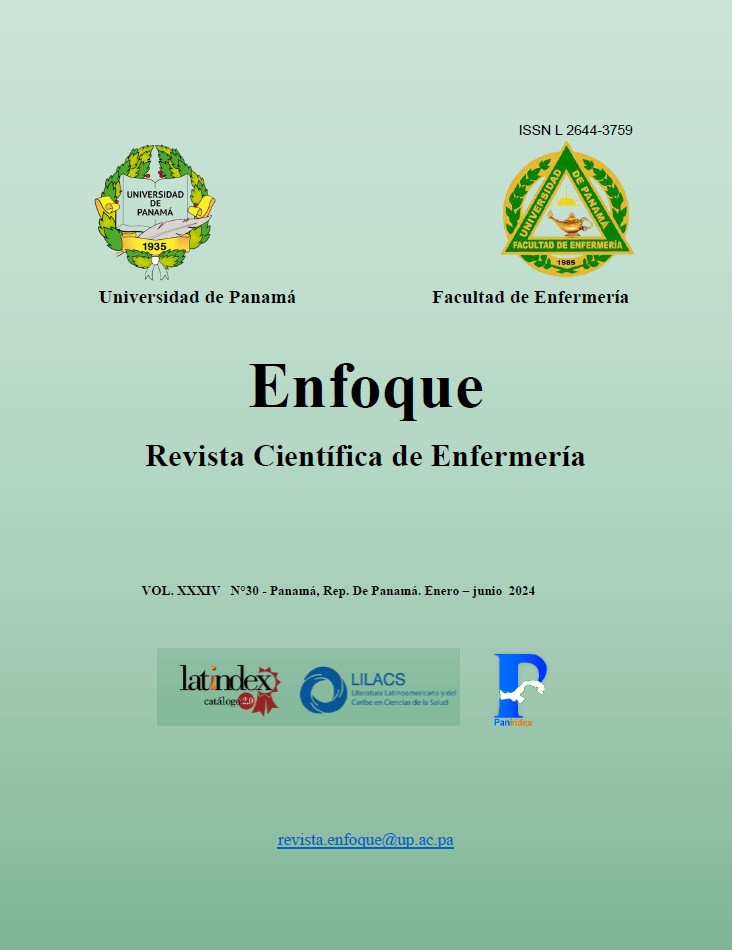

Copyright (c) 2024 Enfoque

This work is licensed under a Creative Commons Attribution-NonCommercial-ShareAlike 4.0 International License.
For the nursing discipline, in situations of uncertainty where people experience danger to their physical, emotional, and social integrity, the nursing care approach must be based on a theory. This case study applies Mishel´s middle-range theory of uncertainty in illness. Donald states that certain elements in people´s lives become antecedents of uncertainty and that people´s cognitive capacity favors or limits the subjective interpretation of their illness, treatment, and hospitalization. These can have consequences such as anxiety, depression, and hopelessness. This case study applies this theory through the nursing care process (PAE) in the mental health care of a married 31-year-old patient with tongue cancer and the mother of a five-year-old child. The data collection was through nursing assessment: interviews, mental assessment, Gordon's functional patterns, Rossemberg's self-esteem scale, Hamilton's anxiety test, Beck's hopelessness test, as well as the hospitalization, surgery, and illness stress assessment scale test. The selected diagnoses were intervened for two months. We worked with the self-esteem, anxiety, hopelessness, and uncertainty of the patient. The results were very favorable for the emotional recovery of the patient, with her own construction of positive coping mechanisms to the changes in her body image by showing love for herself and the value of life despite the unexpected events, decreasing her anxiety levels, and significantly improving her level of self-esteem.